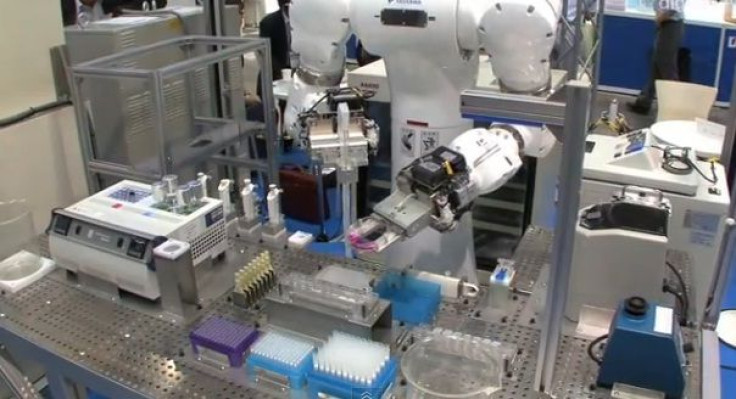Two-Armed Robot Can Provide Help With Dangerous Lab Work

Robots are all the rage in science. A two-armed robot created by manufacturers in Japan is currently being used in laboratories in pharmacies and universities.
Developed by Yaksawa and Japan’s National Institute of Advanced Industrial Science and Technology (AIST), Mahoro the robot can conduct laboratory work and conduct cultures quicker, more precisely and efficiently than humans. Because robots have no immune system to speak of, they are particularly ideal at working with biohazards, such as radioactive materials, and conducting clinical tests. Tohru Natsume, speaking on behalf of AIST, says that they conduct lab work often on the influenza virus, and the robot is ideally equipped to deal with those cultures.
The company says that they have attempted to use robots before, focusing specifically on special-purpose ones. But when they changed trial procedures, or continued onto a different experiment, the robots became useless. Natsume adds also that developing robots is time-consuming. A robot such as Mahoro, which can do what people can do, using the tools that people use, provides the best of current technological capabilities.
In the past, an equivalent robot would have taken a long time to be trained. Mahoro, on the other hand, can be trained easily with the aid of a computer. The computer shows virtually the robot at a work station. When someone is operating the computer, Mahoro will do what the computer instructs. For example, if the computer instructs Mahoro to pick up a tube, the robot will then do so.
While the robot looks similar to robots currently in place in factories to assemble items, it has seven joints instead of six. The seventh joint allows the robot to have use of an elbow.
The organization responsible for the robot wants to improve its safety so that it can be able to work with humans.
A video providing an introduction to Mahoro is displayed below.



























